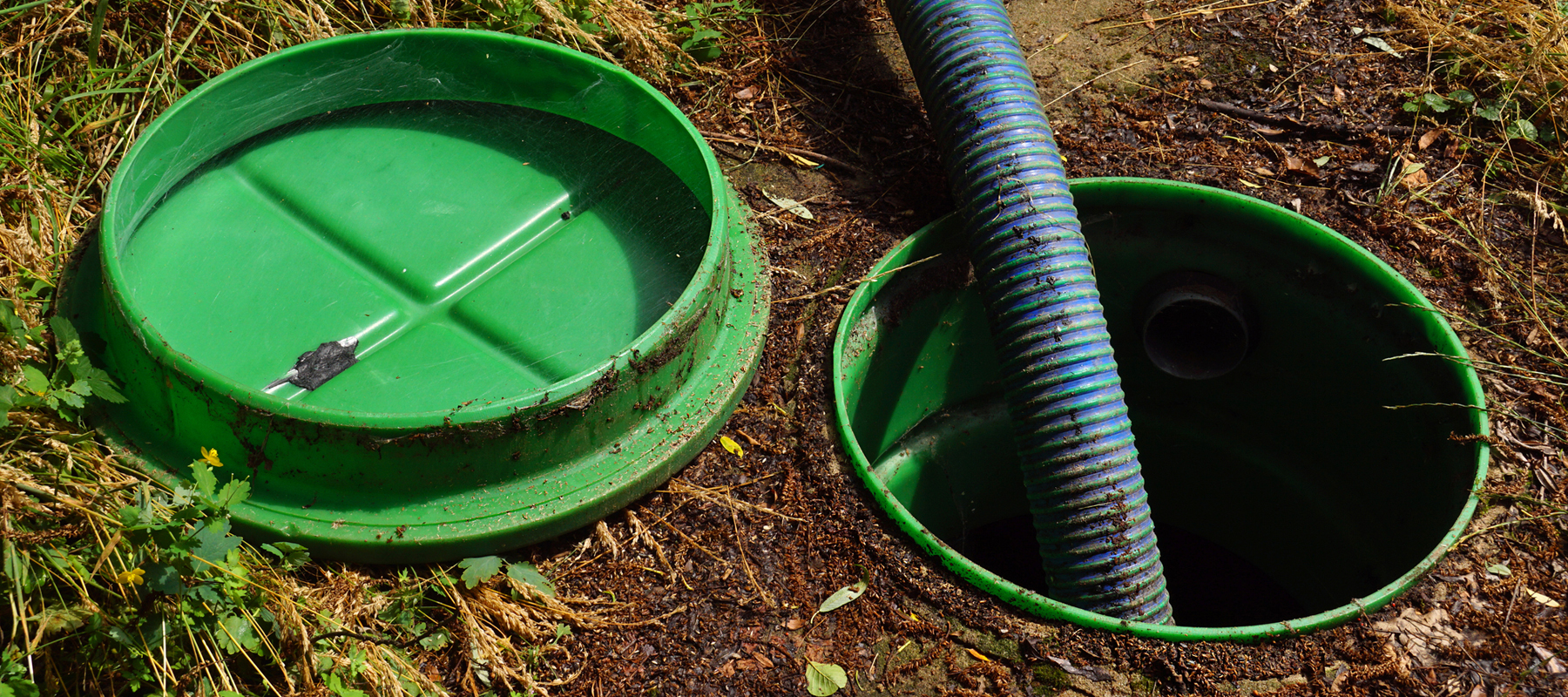How Much Does Septic Tank Pumping Cost?
Last Updated: November 14, 2023

Fact Checked By: Ryan Maguire
On This Page
Septic tank needs regular maintenance to function properly. Without it, septic tank problems will occur. Septic backup and foul odors are just two of the problems that can happen without regular septic tank maintenance. Having a septic service regularly pump your tank is vital. If you're too late with the maintenance, the entire neighborhood will stink and you don't want to be that neighbor.
Septic Tank Pumping Cost #
A typical residential septic tank pumping costs $250 to $600 on average. Here are the key factors affecting septic pumping service costs:
Tank size - Small tanks around 1000 gallons cost less. Large tanks over 2000 gallons have higher pump out fees.
Waste level - Partial pump outs for low waste are $100-$300. Full pump outs for very full tanks run $300-$800.
Local rates - Some areas just have higher septic service costs based on labor, disposal fees, etc.
Access issues - Hard to reach tanks cost more for special equipment and labor time.
Add-ons - Extra services like tank or pipe inspections, bacterial treatments, etc add costs.
Frequency - Rates are lower for regular scheduled cleanings vs emergency one-off pump outs.
For a typical 1000 gallon concrete tank, expect to pay $250-$400 for full waste removal every 3-5 years. But costs can go up significantly for large or difficult tanks.
Septic Pumping Cost Examples #
I have a 1000 gallon concrete septic tank at my rural home. A local septic company charged me $275 to pump out the full tank and dispose of the waste. It had been about 4 years since the last pump.
Our old 1500 gallon septic tank was very full, so we called a highly rated septic contractor to pump it out fully. They charged us $425 for the pumping service as well as adding bacterial treatment to the tank.
We have an hard to access 1000 gallon plastic septic tank buried deep out in the yard. Because of the difficult access, a septic pumping company charged us $375 to pump out all the waste using a special truck.
For my homestead cabin I have a 600 gallon septic tank that only needed a partial pump out since it was not full yet. A local septic pumper charged me $150 to remove the solids and leave some waste.
Consequences of Neglecting Septic Tank Pumping #
I went over 5 years without pumping my household septic tank. The waste built up to the point where solids flowed out into the drain field, clogging it. I had to pay $3,500 to have the tank pumped, drain field excavated and replaced, and repairs done.
Our septic tank hadn't been pumped in so long that waste backed up into the house. The plumbing drains were flowing sluggishly and the bathrooms smelled horrible. A plumber snaked the pipes but we still ended up having to replace $600 of piping that was corroded by the sewage backup. We immediately scheduled septic tank pumping after that nightmare.
We started noticing the lawn over the septic drain field had very lush, fast growing grass. When we finally had the tank pumped after 7 years of ignoring it, the technician showed us photographs of massive root intrusion into the pipes from the grass. Clearing the roots and repairing the drain field piping cost us $1,800.
I took a chance not pumping the tank for too long. Big mistake. One day the system backed up into the house leaving an awful mess of overflowing sewage! We had over $20,000 in costs including replacing carpets and drywall. Now I pump the tank regularly without fail.
Neglecting periodic septic tank pumping can lead to very costly damages. It's critical to have the tank cleaned before waste builds up too much to avoid plumbing backups, drain field problems, and serious house damage.
How Often Should I Pump My Septic Tank? #
| Tank Size | 1-2 People | 3-5 People | 6-8 People |
|---|---|---|---|
| 500 Gallons | Every 1-2 years | Every 1-2 years | Every 1 year |
| 1000 Gallons | Every 3-4 years | Every 2-3 years | Every 1-2 years |
| 1500+ Gallons | Every 5+ years | Every 3-4 years | Every 2-3 years |
Signs That It's Time to Pump #
Some professionals pump the septic tank when it is called for, as a part of their routine maintenance and service checks. However, your septic may need to be pumped before your regularly scheduled maintenance. That's why it's important to know the signs to look for that it's time to pump your septic.
- Landscaping signs: If the grass or plants around your tank appears healthier than the rest of the yard, you may have a leak or a tank that needs pumping.
- Slow drain: If water drains slowly inside the house (toilet, washing machine, sinks), it's a good idea to have your tank checked before that sluggish draining becomes a backup.
There are also signs that your septic tank has reached emergency, need-to-pump-it-now status. If you notice any of these, call your septic company as soon as possible.
- Wastewater backup: Backups may occur anywhere you have a drain, including bathtubs, sinks, and toilets. Never attempt to clean wastewater, as it can be extremely dangerous to your health.
- Standing water: You may notice standing water in your yard, particularly around the septic tank.
- Odors: If you smell any foul odors in your yard, it's probably time to call in the pros.
Maintaining Your Septic System #
Having your septic system inspected annually by a professional is highly recommended to keep it running properly. However, there are things homeowners can do themselves as well:
Use water efficiently to reduce flow into the septic system. Look for EPA WaterSense labeled fixtures.
Avoid pouring fats, oils, grease, chemicals, pharmaceuticals, and non-biodegradable items down drains. These can clog and damage the system.
Inspect the drain field area regularly for any odors, wet spots, or surfacing sewage which may indicate issues. Keep all plants, structures, and vehicles off of the drainage area.
Pump the septic tank on a regular schedule, generally every 3-5 years depending on tank size and household size. This prevents solids from overflowing into the drain field.
Divert sources of excess water like roof drains, house footing drains, and sump pumps away from the septic system. Excess water slows the treatment process.
Keep detailed records of tank pumping, inspections, repairs, and any issues noticed. This provides valuable information if future problems occur.
Consider septic tank additives to help break down solids and improve microbial digestion. But don't flush additives meant for the tank into the toilet.
Conserve water during rainy, wet seasons when the drain field may be overloaded.
Appliances and Your Septic System #
The appliances that you use every day directly impact on your septic system. When used improperly, they may damage your system or lead to decreased efficiency and costly repairs. Appliances with a direct effect on your septic system include:
- Garbage disposals: If you have a standalone septic system, it is recommended that you do not use your garbage disposal at all. Using the disposal increases the amount of solids that go through your system, building up the scum and sludge layers in your septic tank.
- Hot tubs: Draining all the water from a hot tub at once is a quick way to damage your septic system. Instead, the water should be cooled and drained into areas of your property far from the septic tank and drain field.
- Washing machines: As stated above, the more water you use, the more water that goes through the septic system. If you overload the septic system, the odds of it failing increase drastically. Because of this, it is recommended that you use high-efficiency washing machines and cut down on the number of loads you do in a day to prevent too much water from going through the system.
What Causes Septic Overflow? #
Septic overflow can be caused by multiple things. Some of the most common causes include:
- Bacterial deficiency: The waste in a septic tank is broken down by bacteria, allowing water and other liquid waste to pass through to the drain field. But if your bacteria levels are low, the solids won't break down and your system fills up quickly, causing overflow. Try to avoid putting bleach, chemical cleaners, and other disinfectants down your waste piping to keep from killing the bacteria.
- Clogs and design flaws: Wastewater passes through a series of pipes before entering the tank and then another series of pipes into the drain field. If these pipes become clogged, nothing can pass through properly, leading to overflow. Plants near the drain field can also cause issues, as the roots may disrupt the piping. Improper design is also a major cause of overflow, because if the drainage pipes do not have the proper slope, nothing moves through properly. In this case, the pipes need to be replaced.
- Heavy rains: It is not uncommon to experience septic issues after heavy rain or major storms. This excess water often floods the ground around the drain field, making it impossible for wastewater to exit your septic system. A flooded drain field causes the water to travel backward through your system, into the drains of your home.
- Inadequate maintenance: It is incredibly important that your septic system receives adequate and proper maintenance, a big part of which is pumping the septic tank. If the tank is not pumped when it should be (two to four years is the average), overflow is bound to happen.
Resources:
